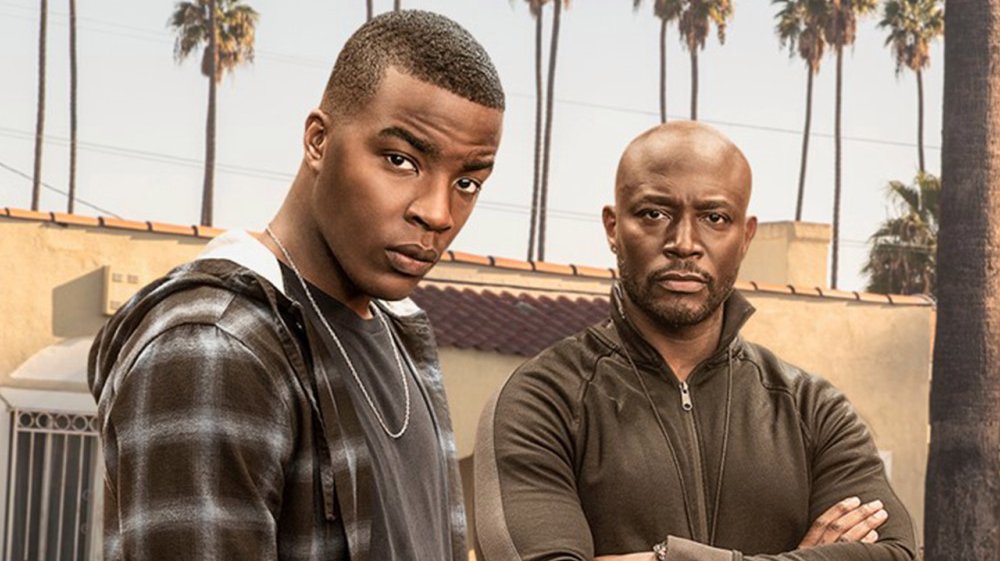Everything All American Doesn't Tell You About The True Story
The CW may have packed its signature brand of teen angst and elevated drama into their hit show All American, but the real story on which the football series is based is just as interesting.
All American follows the life of Spencer James (Daniel Ezra), a star wide receiver at his inner city high school in Crenshaw, South Los Angeles. James' world is turned upside down when he transfers uptown to Beverly Hills High School, and joins the ritzy football squad as a defensive player. Currently in its third season, the series bowed back in 2018, and found a large audience practically out of the gate. In addition to Ezra, the show features Taye Diggs as the football coach at Beverly, and Samantha Logan as his troubled daughter Olivia.
Part of the intrigue surrounding All American concerns the fact that the series is based on the real life story of Spencer Paysinger, a former NFL star who began his career with the New York Giants. Ezra's Spencer James is a fictionalized stand-in for the real life Paysinger. The ex-NFLer serves as producer and executive consultant on the series, and even plays a bit role as Assistant Coach Davis. While his oversight likely adds some degree of verisimilitude to the show, All American diverges from his actual biography in a few important ways.
Paysinger had to navigate a violent world in South LA
Paysinger retired from the NFL in 2018, the same year All American landed at the CW. According to ESPN, the show set out to dramatize the collision of worlds that the Super Bowl-winning defensive back experienced during his adolescence. Like the fictionalized Spencer James, Paysinger was a star athlete from a gang-ridden neighborhood in South L.A. who earned the chance to play football uptown in affluent Beverly Hills. Paysinger claims he never quite felt at home in either world, and while All American certainly depicts some of that tension, it also takes some liberties.
Paysinger got into Beverly Hills High School thanks to a multicultural program that imported students from underserved areas of the city. In order to get there, he had to endure a brutal commute through L.A. traffic that started with a 4 a.m wake-up call every morning.
The level of violence in South L.A. at the time Paysinger was growing up is hard to overstate. The pro linebacker recalled a specific incident when he heard gunshots after a championship baseball game taking place in a local park. His mother was rightfully concerned about the violence, and worried Paysinger might meet with serious repercussions for wearing the wrong colors to school.
Paysinger went to great lengths to stay safe as a kid. To avoid traveling through the neighborhood after dark, he used to spend the night at his grandparents' house. Moving from that situation to posh Beverly Hills was the ultimate culture shock. It was this stark contrast in Paysinger's life story that originally attracted Executive Consultant Dane Morck to the series.
"One of the things that I always found interesting about Los Angeles was the stark contrast in communities that are just sitting side by side," Morck told ESPN. "That was always interesting to me because you grow up here and you kind of stay in your pocket, and you kind of dealt with what was in front of you. I also realized at the same time I was talking to someone who had found success in a hard space, and he was a modern-day kind of hero in his path, in his journey, and that really appealed to me."
We're totally here for it — even if the CW does season Paysinger's biography with a little extra teenage angst.

